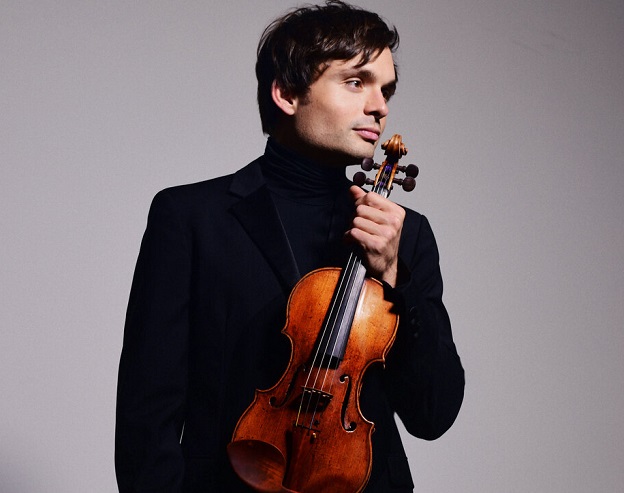A native of Mallorca you play around the world, but it looks like a great part of your career takes place in the United States. Why?
As a teenager, I moved to New York City to study at The Juilliard School. I immediately fell in love with the energy of the city and have been incredibly fortunate to develop wonderful performing opportunities in the US. I do 100% still consider myself Spanish and love returning to my home country and to Europe to perform, my family is all back there. Some of the most magical musical experiences where my playing has been transformed have been in Europe, and as an aviation enthusiast and travel fanatic, flying back and forth is always a positive thing and adds to the experience!
You perform with major orchestras, you give recitals and play chamber music. Do you have a preference?
I need all of them! My music making would be severely affected if I had to give up any of those. It is the beautiful thing about having a job where you are always learning. One’s musical taste and abilities are always in motion, constantly evolving, and the energy that keeps those ‘engines’ spinning is drawn from all forms of music making. The common denominator across all types of performances is always the connection with others: inspiring musicians to collaborate with, excited audiences eager to hear a new piece or beautiful recital partners whom to dive deep into a specific program for hours on end.
You are currently Artist-in Residence of the baroque ensemble Apollo’s Fire. What is special about this ensemble and how does your collaboration work?
The group is relentless in their pursuit of excellence: their energy is contagious, every member, led by the visionary Jeannette Sorrell, is so committed to both impeccable technique and to search for the deepest levels of musical meaning in each piece. We share the same intense passion and joy for performing this music and giving it all at every performance.
You are the co-founder of San Antonio’s Classical Music Summer Institute, where you serve as Chamber Music Director. You created the Fortissimo Youth Initiative, a series of music seminars and performances with youth orchestras, which aims to explore and deepen young musicians’ understanding of 18th-century music. How does it come that you, at your young age, develop such educational models?
I come from a family of educators. Literally my whole family (both my parents, aunt and uncle and even my cousins!) are teachers. So one could say working with young people runs in my blood!
Two things are what fuel my passion for these projects: I have always felt one learns the most as a musician from playing with others. So many talented kids out there don’t get to perform alongside people that have a lot more experience than them and I would like to change that. The younger you can get those opportunities, the more impact they can have on the student’s musical path.
The other aspect that draws me to working with young people is their overwhelming amount of passion and energy, which aligns with my own personality and approach to music. Their raw and unfiltered reaction to a beautiful phrase or how their eyes light up when they realize how much better a passage sounds after a small adjustment in rehearsal is exhilarating to be a part of.
Tell us about the 1735 Mary Portman ex-Kreisler Guarneri del Gesù violin, which you are able to use on loan through the Stradivari Society of Chicago.
My partner in crime. Both its owner and myself call ‘her’ miss Mary because she has so much personality. Her raw power at the E and G strings is amazing, just like what you would expect from a violin made by such fine maker, but what makes her special is when you start looking for sweetness and colors. Its middle register, caressing the A and D strings with my bow, unlocks such profound beauty. I can imagine that was the reason why Kreisler fell in love with the violin, it was his first big purchase in his early years of touring. While on stage, you can be as physically involved as you want to with the instrument, which suits my playing. The more in the moment you are with the music, the more she responds and sings away.























